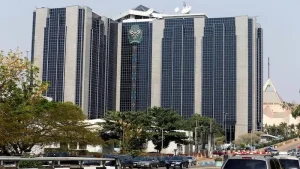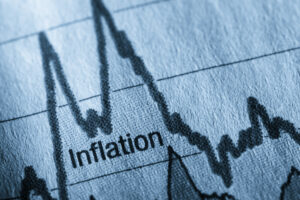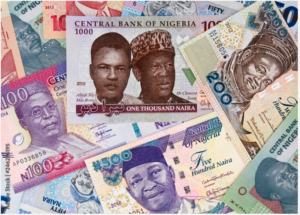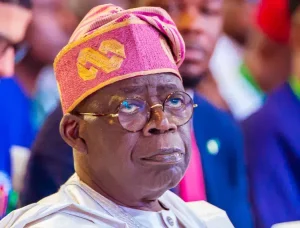CONTENTS
-
CBN HOLDS RATES
-
INFLATION TRENDS
-
NAIRA FACES PRESSURE
-
DEBT CRISIS DEEPENS
-
HUNGER, UNEMPLOYMENT, INSECURITY
CBN HOLDS RATES

MPR at 27.5%, CRR at 50%
The Central Bank of Nigeria (CBN) has retained the Monetary Policy Rate (MPR) at 27.5%, following the 300th Monetary Policy Committee (MPC) meeting held in Abuja.
CBN Governor Olayemi Cardoso announced the outcome during a press briefing on Tuesday, affirming the committee’s cautious stance amid prevailing macroeconomic conditions.
Key Monetary Policy Decisions:
Monetary Policy Rate (MPR): Retained at 27.5%
Asymmetric Corridor: Maintained at +500/-100 basis points around the MPR
Cash Reserve Ratio (CRR): Held at 50% for Deposit Money Banks, 16% for Merchant Banks
Liquidity Ratio: Unchanged at 30%
All 12 members of the MPC voted unanimously to maintain the current rates.
The CBN explained the decision as a move to consolidate recent policy tightening and allow time to assess the impact of earlier interventions. It comes as the inflation rate showed a modest decline, easing to 23.71% in April 2025 from 24.23% in March, according to the National Bureau of Statistics (NBS).
Economic Implications
By holding rates steady, the CBN is prioritizing price stability while giving room for existing monetary tools to take effect. The committee also emphasized the need for fiscal-monetary policy coordination to sustain economic growth and manage inflation.
Market watchers suggest that future rate cuts may be considered if inflation moderates and the foreign exchange market stabilizes in the coming months.
Market Snapshot
Ahead of the MPC announcement, the naira appreciated slightly to N1,597/$1 at the official FX window on Monday, up from N1,599.01/$1 the previous Friday, a sign of growing investor confidence in the CBN’s ongoing stabilization efforts.
INFLATION TRENDS

Inflation Slows Slightly, But Cost Pressures Persist
Nigeria’s inflation rate slowed to 23.71% in April 2025, down from 24.23% in March, according to the latest Consumer Price Index (CPI) report released by the National Bureau of Statistics (NBS). This modest decline, amounting to a 0.52 percentage point reduction, signals the early effects of recent monetary and fiscal adjustments aimed at stabilizing the economy.
Key National Figures and Drivers.
Month-on-Month Inflation:
The general price level grew at a slower pace month-on-month, rising by 1.86% in April compared to 3.90% in March. This drop suggests some moderation in consumer prices across various sectors.
Food Inflation:
One of the most impactful components, food inflation, fell year-on-year to 21.26% in April, a sharp decline from 40.53% in April 2024. Month-on-month, the rate dropped to 2.06% from 2.18% in March. The moderation in food prices was primarily driven by decreases in staple goods such as maize flour, dried okro, yam flour, rice, and various legumes.
Core Inflation:
Excluding volatile food and energy prices, core inflation stood at 23.39% year-on-year, down from 26.84% the previous year. Month-on-month, core inflation fell significantly to 1.34%, from 3.73% in March.
Urban and Rural Inflation:
Urban inflation was recorded at 24.29%, slightly higher than the rural rate of 22.83%, underscoring the continued urban-rural divide in cost-of-living pressures.
Contributors to Headline Inflation.
The top contributors were:
Food and non-alcoholic beverages (9.49%)
Restaurants and accommodation services (3.06%)
Transport (2.53%)
Least contributing categories included:
Alcoholic beverages, tobacco, and narcotics (0.09%)
Recreation, sport, and culture (0.07%)
State-Level Breakdown:
Year-on-Year Headline Inflation:
Hghest: Enugu (35.98%), Kebbi (35.13%), Niger (34.85%)
Lowest: Ondo (13.42%), Cross River (17.11%), Kwara (17.28%)
Month-on-Month Headline Inflation:
Highest: Sokoto (16.26%), Nasarawa (16.02%), Niger (14.74%)
Lowest: Oyo (-6.45%), Osun (-4.54%), Ondo (-3.44%)
Food Inflation (Year-on-Year):
Highest: Benue (51.76%), Ekiti (34.05%), Kebbi (33.82%)
Lowest: Ebonyi (7.19%), Adamawa (9.52%), Ogun (9.91%)
Food Inflation (Month-on-Month):
Highest: Benue (25.59%), Ekiti (16.73%), Yobe (13.92%)
Declines: Ebonyi (-14.43%), Kano (-11.37%), Ogun (-7.06%)
Economic Implications and Outlook
Professor Mohammed Mainoma, a former Vice Chancellor of Nasarawa State University and current President of the Association of National Accountants of Nigeria (ANAN), described the development as a “positive signal” amidst Nigeria’s broader macroeconomic recalibration.
“A decline in inflation, even marginal, is a psychological relief to households and can bolster investor confidence, particularly in equity markets,” said Prof. Mainoma.
He added that consumer-facing sectors like FMCGs (Fast Moving Consumer Goods) could benefit from enhanced purchasing power, potentially improving revenue and shareholder value. Additionally, manufacturing firms may see better operational efficiency due to reduced raw material and transportation costs.
However, Prof. Mainoma cautioned that inflation remains well above the Central Bank of Nigeria’s (CBN) comfort zone, meaning tight monetary policy, including high interest rates may persist in the short term.
“Investors are watching closely. If inflation continues to trend downward, the CBN may consider loosening rates in the second half of 2025,” he noted.
Policy Implications
The CBN’s latest decision to retain the Monetary Policy Rate (MPR) at 27.5% suggests a cautious stance, giving room for existing policies to take full effect. Analysts say that a consistent decline in inflation, supported by exchange rate stability and food supply chain improvements, could eventually allow for a more accommodative policy environment.
Additionally, improved inflation numbers may encourage greater capital inflows, restore investor confidence, and improve Nigeria’s credit outlook.
NAIRA FACES PRESSURE

Currency Depreciation Sparks Debate on Policy Response
The Nigerian naira came under renewed pressure in May 2025, with the exchange rate weakening to approximately ₦1,590/$1 in the parallel market, as reported. This depreciation marks one of the lowest values in recent months and has stirred renewed debate about the country’s exchange rate management and macroeconomic stability.
Key Drivers of Depreciation
Several underlying factors are contributing to the naira’s sustained weakness:
Falling Oil Revenues: Nigeria’s primary foreign exchange earner, crude oil, has seen fluctuating prices and lower production output due to pipeline disruptions and declining investment in the sector. This has constrained dollar inflows into the economy.
Reduced Foreign Investment: Political uncertainty, high inflation, and a challenging regulatory environment have continued to dampen foreign direct investment and portfolio flows, reducing FX supply.
Increased FX Demand: There is rising demand for foreign currency for imports, education, healthcare, and travel, especially in the face of global inflation and domestic shortages. These pressures have widened the gap between the official exchange rate and the parallel market.
CBN Interventions and Reforms
To curb the naira’s slide, the Central Bank of Nigeria (CBN) has introduced a series of monetary and market reforms:
Interest Rate Hike: The Monetary Policy Committee (MPC) maintained a tight monetary policy stance, holding the Monetary Policy Rate (MPR) at 27.5%. This decision aims to contain inflation and bolster the naira by attracting investment in naira-denominated assets.
Market Intervention: The CBN has resumed periodic FX interventions to manage volatility in the Nigerian Autonomous Foreign Exchange Market (NAFEM), supplying dollars to critical sectors such as manufacturing and aviation.
NAFEM Enhancement: The central bank continues to encourage the use of NAFEM to foster transparency and price discovery. According to BusinessDay, reforms are also underway to improve dollar liquidity and rebuild trust among international investors and exporters.
Impact on Businesses and Investors
Despite the CBN’s efforts, naira volatility remains a key concern for businesses and investors. Import-dependent companies, in particular, are facing rising costs due to FX scarcity and unpredictable exchange rates. This is also affecting pricing, profit margins, and business planning.
Financial analysts have urged companies to adopt hedging strategies to manage currency risk, such as forward contracts, diversified currency holdings, and optimizing local supply chains to reduce import reliance.
Outlook
While short-term interventions by the CBN may provide temporary relief, structural reforms, such as boosting non-oil exports, improving FX market governance, and attracting sustainable investment, are essential for long-term currency stability.
Stakeholders in the financial sector are closely watching developments, with many awaiting further policy clarity and signs of improved dollar liquidity before re-engaging the Nigerian market.
“A Lagos-based economist said, “The FX challenges are not just a monetary issue, they are structural. Unless Nigeria can significantly ramp up exports and confidence in the FX market, the naira will remain vulnerable”.
DEBT CRISIS DEEPENS

Nigeria’s Soaring Debt Servicing Raises Red Flags on Fiscal Sustainability
Nigeria’s public debt has entered a critical phase, raising serious concerns about the nation’s financial stability and long-term economic trajectory. According to newly released data by the Central Bank of Nigeria (CBN), the country spent $2.01 billion on debt servicing from January to April 2025. This figure represents a staggering 49.2% increase compared to the $1.34 billion spent during the same period in 2024.
The sharp rise is more than a statistical anomaly; it is symptomatic of deeper structural and policy issues threatening the sustainability of Africa’s largest economy. Experts point to a toxic mix of shrinking government revenues, rising interest obligations, currency volatility, and an expanding fiscal deficit.
The President’s New Debt Proposal: A Tipping Point?
As concerns grow over Nigeria’s ballooning debt, President Bola Ahmed Tinubu has submitted a formal request to the National Assembly seeking approval for a massive new borrowing package. The proposal includes:
- $23.5 billion (USD)
- €2.2 billion (EUR)
- ¥15 billion (JPY)
- ₦757.9 billion (NGN) in local bonds and pension-backed securities
This multilateral and bilateral loan request forms part of the 2025–2026 Borrowing Plan and is intended to fund critical infrastructure projects, fill revenue gaps, and stabilize the macroeconomic environment. The Senate has referred the proposal to its Committee on Local and Foreign Debts for vetting, even as public scrutiny intensifies.
Critics argue that this proposal, if approved, could push Nigeria’s total debt to nearly ₦183 trillion. Groups like SERAP have called on the National Assembly to reject the plan or demand stringent conditions.
A Dangerous Fiscal Imbalance.
At the core of Nigeria’s economic distress is an unsustainable fiscal model. The International Monetary Fund (IMF) projects that Nigeria’s General Government Overall Balance will deteriorate to -4.5% of GDP in 2025, worsening from -3.4% in 2024. This means that Nigeria continues to spend significantly more than it earns.
“Debt can be a useful tool for development,” says Dr. Temitope Adesina, an Abuja-based economist, “but when debt service begins to outpace investment in productive infrastructure and welfare programs, the nation’s long-term growth prospects are at risk.”
The implication is that more of Nigeria’s limited resources are being channeled into servicing existing debts, leaving less for critical investments in healthcare, education, infrastructure, and poverty alleviation.
The Role of Oil and Revenue Diversification Challenges.
Despite efforts to expand revenue sources beyond oil—through VAT, customs duties, and other non-oil revenues—Nigeria continues to suffer from a narrow fiscal base. The oil sector, once the bedrock of government revenue, has been undermined by:
- Pipeline vandalism
- Crude oil theft
- Declining production levels
The volatility in global oil prices and persistent operational disruptions have further reduced expected earnings.
With most of Nigeria’s external debt denominated in foreign currencies, the depreciation of the naira has also made debt repayment significantly more expensive.
Rising Costs, Fewer Gains.
According to the Debt Management Office (DMO), Nigeria’s total public debt stood at over ₦97 trillion ($83 billion) as of March 2025. Of this, external debt constitutes a significant and growing proportion.
This growing debt burden is not merely theoretical. It has real, tangible consequences:
- Reduced public spending on infrastructure
- Delayed payments to contractors
- Cuts in funding for social services
- Diminished investor confidence
Financial analyst Niyi Adebayo warns, “When more than half of your national revenue goes into servicing debt, it creates a serious imbalance that undermines development goals.”
Warning Signs: Debt Trap Ahead?
If current borrowing trends continue, Nigeria risks falling into a debt trap. This is a condition where new loans are primarily used to repay old ones rather than finance new, growth-enhancing projects. Such a pattern:
- Stifles economic growth
- Increases debt vulnerability
- Triggers capital flight
Several multilateral institutions have cautioned Nigeria to act swiftly. The World Bank, IMF, and African Development Bank (AfDB) all advocate for fiscal consolidation and institutional reforms.
Key Recommendations for Economic Stability
Experts and financial institutions propose several urgent steps for Nigeria:
- Cut Non-Essential Spending: Enforce tighter budget controls and eliminate wasteful expenditures.
- Broaden the Tax Base: Formalize and tax the informal economy; improve collection efficiency.
- Promote Private Sector: Growth Reduce reliance on public borrowing by encouraging investment-led growth.
- Enhance Debt Transparency: Tie new loans to measurable development outcomes.
- Stabilize the Currency: Harmonize fiscal and monetary policies to reduce inflation and boost the naira.
A Fraying Social Contract
While the federal government remains optimistic about managing the debt load, public confidence is eroding. The rising cost of living, high unemployment, and widespread poverty have created an atmosphere of frustration and skepticism.
Nigerians are demanding more than promises. They seek accountability, transparency, and a clear economic recovery plan with timelines and measurable impacts.
Nigeria stands at a crossroads. The consequences of inaction or delayed reform could be dire: further economic deterioration, capital flight, credit downgrades, and prolonged hardship for citizens.
The new debt request, coupled with soaring debt service obligations, calls for strategic fiscal management and decisive leadership. The time to act is now.
HUNGER, UNEMPLOYMENT, INSECURITY

Nigerians Cry Out As Hardship Worsens
Nigerians across the country are grappling with deepening economic hardship, marked by soaring food prices, widespread hunger, rising insecurity, and persistent unemployment. Citizens and civil society groups continue to voice growing frustration over what they describe as the government’s inadequate response to the crisis.
President Bola Tinubu, through a statement delivered by Minister of Labour and Employment Muhammad Dingyadi, acknowledged the realities Nigerians face:
“I am aware of the peculiarities of the economic hardship Nigerians face, rising living costs, hunger, insecurity, unemployment, and the loss of livelihoods. These challenges are real and demand definitive solutions, which I am poised to address as your President.”
Despite this reassurance, many Nigerians say they are yet to see tangible action. Families are struggling to afford basic food items, as food inflation surged to 40.53%, the highest in nearly three decades. A 50kg bag of rice now costs more than a month’s minimum wage for many workers, making basic sustenance unaffordable for millions.
Labour unions have also decried what they describe as worsening socio-economic conditions, with the Nigeria Labour Congress (NLC) and Trade Union Congress (TUC) warning that government policies are pushing citizens into deeper poverty. In a joint statement, NLC President Joe Ajaero and TUC President Festus Osifo said:
“The Nigerian economy is facing severe structural challenges. Inflation, unemployment, and exchange rate instability have worsened living conditions. The numbers do not reflect the grim reality on the ground, 115 million people now live in absolute poverty, and multidimensional poverty affects nearly 175 million.”
They noted that while the government frequently highlights macroeconomic progress, the lived experience of most Nigerians tells a different story:
“Whatsoever statistics or numbers that do not demonstrate that the people are well-off and are able to meet their basic needs now and in the future is sheer deception.”
The unions also accused the government of failing to protect lives and property, with ongoing insecurity in rural and urban areas disrupting farming, shrinking food supply, and driving up costs.
The situation has been compounded by the exit of major companies from Nigeria due to the tough business environment. Over 60 multinational firms, including GlaxoSmithKline and P&G, have pulled out since 2023, worsening job losses and raising questions about the country’s economic direction.
Former Vice President Atiku Abubakar also weighed in, describing Nigerian workers as “quiet heroes” who continue to shoulder the weight of economic collapse despite minimal support. He criticized policymakers for ignoring the worsening plight of citizens and urged for urgent reforms:
“It is deeply disheartening that those entrusted with governance have failed to respond to workers’ unwavering dedication with tangible support and justice,” he said.
Meanwhile, citizens across various states continue to lament the crushing cost of living. A market trader in Abuja said,
“We can no longer feed our families. Everything is expensive, rice, garri, beans, even tomatoes. People are hungry, and the government is not doing anything.”
Many Nigerians are demanding not just statements of sympathy but immediate policy interventions that will directly alleviate suffering, stabilize food prices, and restore a sense of security.
As the crisis deepens, pressure continues to mount on the government to move beyond rhetoric and provide concrete solutions to the growing hunger and hardship affecting millions.
The statement comes amidst a recent International Monetary Fund (IMF) report which revealed that 234 bank branches and 649 ATMs were shut down in Nigeria in 2023. While this has sparked concern in some quarters, both the CBN and CIBN maintain that the development is part of broader efforts to modernize the banking infrastructure and embrace digital transformation, not a sign of systemic instability.
As the country navigates these transitions, industry experts continue to urge the public to stay informed through verified sources and avoid speculation that could undermine confidence in the financial system.
SOURCES: Nariametrics, Businessday, istock images, shutterstock images, Punch newspaper, Premium Times, Leadership News, Vanguard News, Daily Times Nigeria, Linda Ikeji’s Blog.
DISCLAIMER
This publication is produced by Centrum Finance Company Limited solely for the information of users who are expected to make their own investment decisions without undue reliance on any information or opinions contained herein. The opinions contained in the report should not be interpreted as an offer to sell, or a solicitation of any offer to buy any investment. Whilst every care has been taken in preparing this document, no responsibility or liability is accepted by any member of the Company for actions taken because of the information provided in this publication

